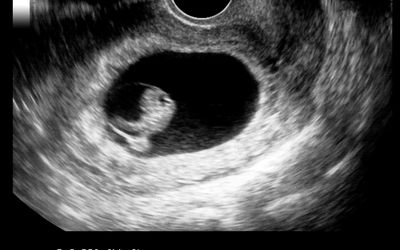6 Conditions You Didn’t Know Ultrasound Imaging Can Detect

Ultrasounds are important diagnostic tools that use high-frequency sound waves to produce images of your organs. While they are more popular for their application in pregnancy, doctors can use an ultrasound Buckhead to determine the cause of many gynecological health concerns. This includes ovarian cysts, pelvic inflammatory disease (PID), endometriosis, and painful periods. But did you know that ultrasounds have a wide range of diagnostic applications? Here is a look at 6 conditions you probably did not know this type of imaging can detect.
Table of Contents
1. Cancer
Ultrasound imaging is more effective than x-rays in showing pictures of soft tissue injuries and illnesses. Healthcare providers often use an ultrasound to guide the needle during a biopsy, which allows them to see the needle entering the tumor. Additionally, it can be used to identify a tumor through blood flow imaging since blood flows differently through a tumor than through normal tissue.
2. Ectopic Pregnancy
An ectopic pregnancy happens when a fertilized egg gets implants outside the womb. Ectopic pregnancies are the leading cause of maternal death in the first trimester. If this condition is not detected and treated early, it can cause severe bleeding and abdominal pain, ruptured fallopian tube, permanent fallopian damage, or death. This can be avoided if you get an ultrasound at least 8 weeks into your pregnancy.
3. Heart Disease
Because they can image blood flow, ultrasounds can be used to determine blockages and narrowing in the blood vessels. The waves bouncing off your heart can produce pictures that help your doctor detect the initial signs of heart disease. This early detection can be lifesaving.
4. Enlarged Heart
Your doctor can also use ultrasound imaging to diagnose an enlarged heart, which, if left untreated, can result in cardiac arrest, blood clots, or heart failure. Usually, your doctor will recommend an ultrasound if you simultaneously experience swelling, abnormal heart rhythm, and shortness of breath.
5. Stroke
If your risk of a stroke is high, your doctor may recommend a carotid ultrasound. The imaging will monitor your blood flow through the blood vessels in your neck (carotid arteries) to detect possible stenosis. Stenosis can be a sign of an imminent stroke.
6. Other Conditions
Ultrasounds have a wide range of uses in medicine, especially in diagnosis, guiding certain treatments, and detecting and treating soft tissue injuries. In addition to this, they can detect the following:
- Tumors and Cysts: Ultrasound imaging can detect dense tissue areas like cysts and tumors. It also shows tumors differently from cysts, allowing for a more precise diagnosis.
- Infections: Some ultrasounds can image your blood flow. If your doctor notices increased blood flow, they might be encouraged to check for an infection.
- Thyroid Conditions: Doctors may use an ultrasound to detect thyroid problems like abnormal activity and growth. The imaging can also determine whether a nodule calls for a biopsy.
- Uterine Fibroids: Ultrasounds produce images of the female reproductive system and can detect related conditions like fibroids. They are often used to diagnose pelvic pain.
Ultrasounds can deliver images of your developing baby, the cause of your irregular periods, and a diagnosis of heart problems. Whatever you need imaging for, Ideal Gynecology, LLC provides comprehensive in-house ultrasounds and treatments. Contact the office today to set up an ultrasound appointment or use the online scheduler.
